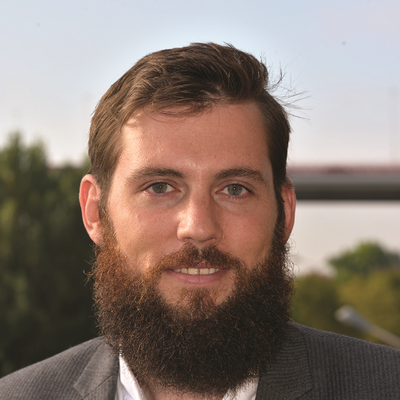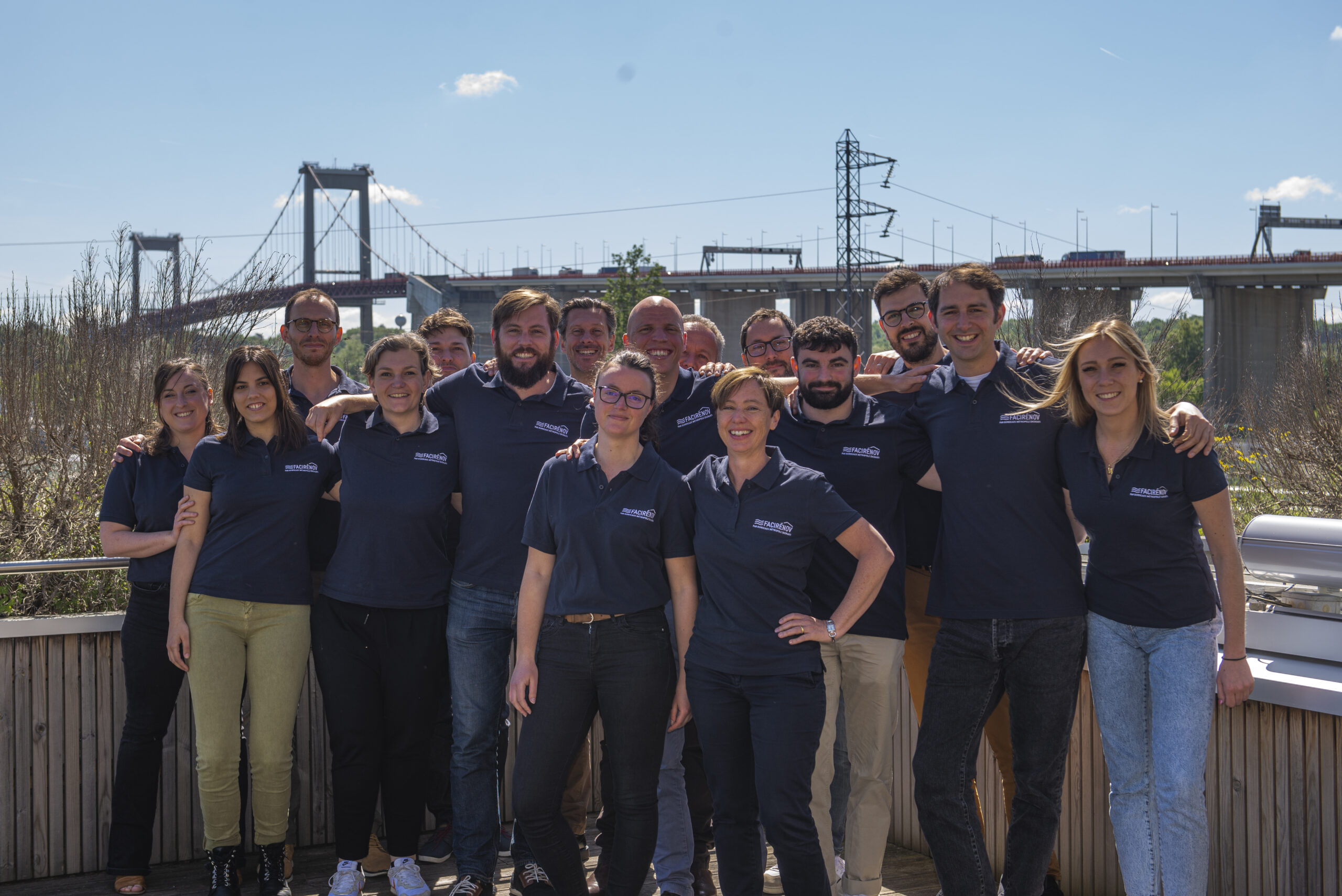
As part of a series of portraits of players involved in energy renovation, today we meet Pierre Levi, Director of Energy Transition at Bordeaux Métropole Énergies.
Please introduce yourself and outline your career. How did you become the Director of energy transition in Bordeaux Métropole Énergies ?
After two years of preparatory classes, I was admitted to Ecole Centrale Nantes, a general engineering school, before studying at the Audencia business school where I gained a double degree in engineering and management.
For the next 10 years or so, I worked in consulting, first at CapGemini Invent, then at GreenFlex on issues related to the energy transition (energy market, energy efficiency, renewable energies, etc.). This is how I came to work on the launch of EnergieSprong in France, a project aimed at massively increasing the number of occupied buildings retrofitted to high energy efficiency standards (net zero energy).
After these varied and highly stimulating experiences, I wanted to take a more hands-on approach and work for an organisation that “gets things done”. So I joined Bordeaux Métropole Energies in 2018, first as deputy director for the energy transition, then a year later as Director. In this role, I am in charge of both the Facirénov brand dedicated to energy renovation and our renewable energy production activities.
Can you present your company to us?
Bordeaux Métropole Energies (BME) is a semi-public company, i.e. a company governed by private law but whose majority shareholder is a local authority. We like to say that BME is a “hundred-year-old start-up”, since the BME structure itself was established in 2018 to launch the energy renovation business and became the new parent company of Gaz de Bordeaux, a local gas supplier established in 1875.
Today, BME is a multi-energy group with around 500 employees and 5 main subsidiaries: Gaz de Bordeaux, which supplies gas throughout France; Regaz, which distributes gas to around thirty municipalities; Mixener, which designs, develops and operates heating and cooling networks; Néomix, specialising in renewable energies; and Via 33, which focuses on low-carbon mobility.
Facirénov is a BME brand dedicated to energy renovation and a member of the SERAFIN network. In this regard, we provide technical expertise in the thermal engineering and construction fields as well as financial expertise, as project managers to owners of single-family homes and as project owner assistants to condominiums. Since the beginning of the year, we have also been developing a range of services for private and public tertiary buildings.
What are the typical profiles of the households you provide support for?
The Facirénov brand is designed to support all homeowners who want to embark on a deep renovation programme.
When we work with condominiums, we consider them as a whole, while not forgetting their individual characteristics. There is no typical household, as the occupants may be young first-time buyers, pensioners or tenants. But there is a key moment, and that is when major maintenance work is required. Especially for buildings dating from before 1980 and taking into account national and local grants, we are able to almost systematically demonstrate that, when external wall restoration is planned, a deep retrofit with external insulation is overall the cheapest option.
As for single-family houses, we have several types of customer. Firstly, people who are buying a property and want to address energy performance issues right away. These are the ‘easiest’ projects, because very often these households make up their minds quickly and the work can be done when the house is unoccupied. Then we have households who identify problems with their property: rising energy bills, damp, a feeling of cold, etc. We have to demonstrate to them the benefits, in terms of economic savings and comfort, of thinking holistically, which is what our thermal and financial engineering skills enable us to do. Finally, there are households which are vulnerable, for whom we work alongside social support services.
What are the specific features of the renovation projects carried out by (very) vulnerable households?
This is not a particular target for us in our region.
How many and what types of energy renovation projects have you supported since the creation of the company?
Bordeaux Métropole has set itself the goal of retrofitting 5,100 single-family homes and 4,400 condominium units per year.
Facirénov has taken two distinct approaches to translating this ambition into quantitative targets depending on the segment.
For single-family homes, the deep, energy-efficient renovation market is still struggling to get off the ground. Data from the ‘MaPrimeRénov’ governmental scheme shows that less than 1% of retrofit projects involve deep renovation (i.e. leading to 55% energy savings). Our ambition is therefore to demonstrate that deep, highly efficient renovation is possible by helping to significantly increase this number. So our 5-year ambition is to reach around 250 projects within 4 years. This year, we should be a quarter of the way there.
The situation is different for condominiums, since there is a real renovation momentum in our area, and our ambition is to become the benchmark player. In the first half of the financial year, we signed 24 energy audit contracts representing more than 2,000 condominium units at the audit stage, and 5 condominiums totalling over 400 dwelling units at the design stage of a renovation project. This financial year, and specifically this spring, is also the period when the first votes will be taken to start the work phase of projects initiated just after the lockdowns more than 2 years ago. This will enable us to measure how effective our support has been.
What do your customers value most? Why do they choose your company?
Customer satisfaction is very important to us, and we listen carefully to their feedback so that we can constantly improve our services. The most frequently mentioned positive points are the single contact person handling their dossier, and the overall support we provide. In fact, we manage their energy renovation project from start to finish, i.e. from the energy audit to acceptance of the work, including the search for grants.
Our customers choose Facirénov because of our turnkey service. Our aim is to relieve them as far as possible of all the constraints attached to a deep energy renovation project. Our strength lies in the support we provide, particularly in the search for grants. The customer has virtually no administrative procedures to deal with; we take care of all the procedures ourselves and advance all the financial aid. Facirénov is unique in that it offers its customers a loan so that everyone is able to carry out renovation work and reduce their energy consumption and bills. Our aim is to ensure that everyone can live in a decent home without breaking the bank.

What have been the milestones in your company’s development so far?
After setting up in early 2018 and dedicating the first six months to recruiting the management team, we first had to work on 2 aspects simultaneously: developing our offering and processes on the one hand and obtaining the necessary authorisations (from the “Autorité de contrôle prudentiel et de resolution”, the French supervisory body for banking and insurance, RGE (Reconnu Garant de l’Environnement) audits, etc.) and funding to launch the business, on the other.
These prior steps were necessary to officially launch our offering in early 2019, first for single-family homes and then for condominiums. We then decided to create the Facirénov brand to house these activities in early 2020, just before the first lockdown.
Today, we are in an acceleration phase, with the first condominiums we’ve worked with voting to go ahead with the work (in the best-case scenario, it takes 2 years from our initial studies to the vote to go ahead with the work) and a very dynamic pipeline of potential projects (lots of energy audits, the first stage in our support, have been signed).
As far as single-family homes are concerned, we have a B2C approach. As the Facirénov brand becomes better known, we also hope to see an acceleration in the number of our projects between now and the end of the year.
What are your plans for the coming years?
We have two main projects in the short to medium term.
The first is to adapt our support services to the decree instituting “Mon Accompagnateur Rénov (MAR)”, a new personal support offer. The decree does not allow us to be part of this new scheme by contracting out directly as we do. We will therefore be moving towards a project management approach, like our counterpart Oktave. This will require us to adapt not only our commercial offering and our communications media, but also our contracts and processes, with two main advantages for our customers: the possibility for them to choose the tradespeople or companies who will carry out the work, and greater agility in integrating specific requests (integration of photovoltaics, special insulation, etc.).
The second is to accelerate the renovation of tertiary buildings, both private and public. To achieve this, we need to further stabilise our offering and define our sales strategy.

What measures could help you promote energy-efficient renovation in your area?
I think that one of the keys to massively increasing energy-efficient renovation in our area is to streamline the whole support process, and especially the neutral, free advice provided, starting from the France Rénov centres through to the economic players (whoever they are). Neutrality should not mean a lack of support or advice.
A second issue is the financing of homeowners’ contributions. Against an inflationary backdrop of rising interest rates, financing has become an increasingly pressing issue. It has to be said that even though the number of Eco-PTZs (interest-free eco-loans) has risen slightly, they are still not being granted enough by the banks (both the individual Eco-PTZ and the collective Eco-PTZ for condominiums). Extending the capacity to grant Eco-PTZs to all members of the SERAFIN network would certainly help unlock a large number of projects.
What advice would you give to future companies, whether public or private, who want to develop the same integrated energy renovation service?
My advice to future companies wishing to develop integrated energy renovation services is to really integrate the eco-systems already in place by making an inventory of the skills available in their areas and also of any gaps in the system. The idea is not to reinvent the wheel, but to fill a gap. The proposed range of services needs to be supported by all the players in the area.
